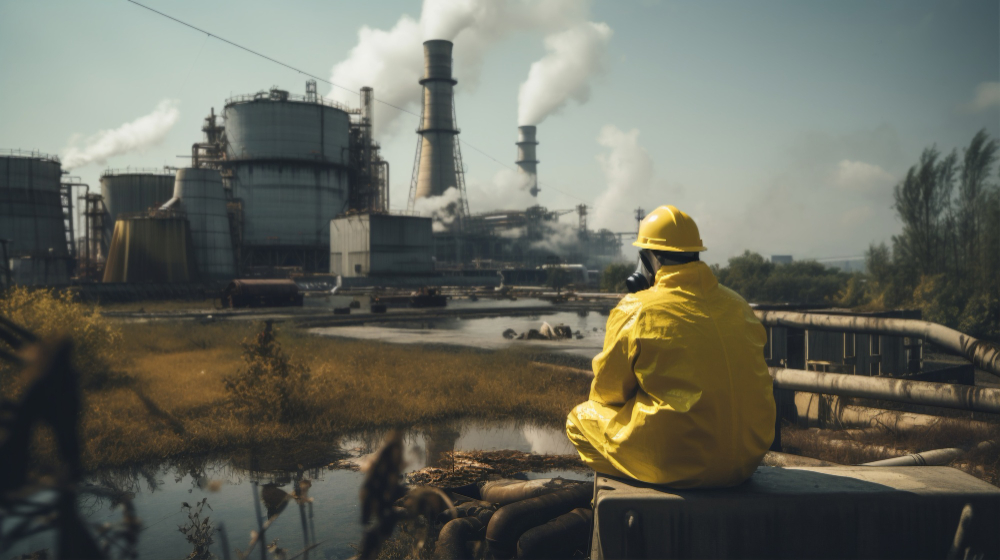Essential Tips: Control Corrosion in the Chemical Industry
Corrosion in the chemical industry can lead to significant safety hazards, operational inefficiencies, and financial losses. At CORCON Institute of Corrosion (CIC), we are dedicated to promoting corrosion awareness and providing comprehensive solutions to combat this pervasive issue. Here are some essential tips to help mitigate corrosion in the chemical industry:
Material Selection
Use Corrosion-Resistant Alloys: Choose materials specifically designed to resist the types of corrosion prevalent in your chemical processes. Stainless steels, nickel alloys, and titanium are often suitable choices. Additionally, consulting with materials scientists can help identify the most effective materials for your specific environment.
Coatings and Linings: Apply protective coatings or linings to metal surfaces. Epoxy, polyurethane, and rubber linings are effective barriers against corrosive substances. These coatings are essential in mitigating corrosion in the chemical industry by providing a durable protective layer.
Corrosion Inhibitors
Chemical Inhibitors: Incorporate corrosion inhibitors into the process fluids. These chemicals form a protective film on metal surfaces, preventing corrosion reactions. This proactive approach not only extends the lifespan of equipment but also ensures the integrity of your chemical processes, minimizing downtime and maintenance costs.
Environmental Controls: Adjust the pH and chemical composition of the environment to minimize corrosive reactions, crucial steps in combating Corrosion in the Chemical Industry. For instance, neutralizing acids with appropriate bases can reduce corrosivity.
Cathodic Protection
Sacrificial Anodes: Install sacrificial anodes in your systems. These anodes corrode instead of the protected metal, thereby extending the life of the equipment and reducing the need for frequent replacements, saving both time and resources.
Impressed Current Systems: Use impressed current cathodic protection (ICCP) systems for more extensive setups. This technique involves applying a direct current to counteract the corrosive currents. ICCP systems are particularly effective for large-scale infrastructure like chemical processing plants, providing long-term protection against corrosion.
Regular Maintenance and Inspection
Routine Inspections: Schedule regular inspections using advanced techniques such as ultrasonic testing, radiography, and magnetic particle inspection to detect early signs of corrosion in the chemical industry.
Preventive Maintenance: Implement a preventive maintenance program that includes cleaning, re-coating, and replacing corroded parts before they lead to failures.
Environmental Control
Humidity Control: Reduce humidity levels in environments where moisture can accelerate corrosion. Dehumidifiers and proper ventilation systems can be crucial in such settings. Additionally, regular monitoring of humidity levels and prompt remediation of any deviations can help maintain optimal conditions for corrosion prevention.
Temperature Regulation: Maintain stable temperatures to prevent thermal cycling, which can lead to thermal fatigue and corrosion. Implementing insulation measures can also help in maintaining consistent temperatures and further mitigate corrosion risks in chemical processes.
Design Considerations
Corrosion Allowances: Design equipment with corrosion allowances, incorporating extra material thickness that can be sacrificial over the lifespan of the equipment, thereby providing an added layer of protection against corrosion in the demanding environment of the chemical industry.
Avoid Crevice Formation: Design equipment with smooth surfaces and rounded edges to minimize areas where corrosive agents can accumulate, thereby reducing the risk of localized corrosion in the chemical industry.
Education and Training
Continuous Learning: Participate in educational and training programs offered by CIC to stay updated on the latest corrosion prevention technologies and practices in the chemical industry. Stay ahead of the curve and safeguard your assets against corrosion challenges.
Certifications: Obtain certifications from recognized bodies like AMPP to ensure your team is well-versed in corrosion control methodologies, crucial for safeguarding assets in the chemical industry and maintaining regulatory compliance.
Frequently Asked Questions
What is corrosion, and why is it a concern in the chemical industry?
- Corrosion is the deterioration of materials, usually metals, due to chemical reactions with the environment. In the chemical industry, where various corrosive substances are handled, corrosion can lead to equipment failure, safety hazards, and production losses.
What are the common types of corrosion encountered in the chemical industry?
Common types of corrosion include uniform corrosion, pitting corrosion, crevice corrosion, galvanic corrosion, and stress corrosion cracking. Each type presents unique challenges and requires specific mitigation strategies.
What role do corrosion inhibitors play in corrosion prevention?
Corrosion inhibitors are chemicals added to process fluids to form a protective film on metal surfaces, preventing corrosive reactions. They are an essential component of corrosion prevention strategies, especially in aggressive chemical environments.
What resources are available for education and training in corrosion prevention?
Institutes like CORCON Institute of Corrosion (CIC) offer educational programs, workshops, and certifications focused on corrosion prevention and control. These resources provide valuable knowledge and skills for addressing corrosion challenges in the chemical industry.
Closing Insights
At CORCON Institute of Corrosion (CIC), we are committed to enhancing the quality and range of services in the field of corrosion awareness, protection, and control both in India and globally. By implementing these tips and leveraging our expertise, you can significantly reduce the impact of corrosion in the chemical industry, ensuring safety, efficiency, and longevity of your assets.
For more information and to participate in our upcoming seminars, workshops, and certification programs, please visit our website or contact us directly. Together, we can combat corrosion in the chemical industry and protect our industrial infrastructure.
Image Reference: Freepik
Disclaimer: All trademarks, logos, and brand names are the property of their respective owners. All company, product, and service names used in this website are for identification purposes only. Use of these names, trademarks, and brands does not imply endorsement.

